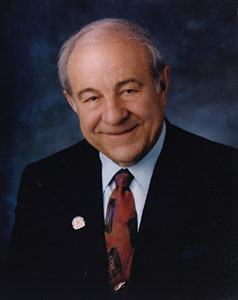A Quote by Fred Rogers
Part of the problem with the word 'disabilities' is that it immediately suggests an inability to see or hear or walk or do other things that many of us take for granted. But what of people who can't feel? Or talk about their feelings? Or manage their feelings in constructive ways? What of people who aren't able to form close and strong relationships? And people who cannot find fulfillment in their lives, or those who have lost hope, who live in disappointment and bitterness and find in life no joy, no love? These, it seems to me, are the real disabilities.
Quote Topics
Ability To See
Able
About
Bitterness
Cannot
Close
Constructive
Disappointment
Feel
Feelings
Find
Form
Fulfillment
Granted
Hear
Hope
Immediately
Inability
Joy
Life
Live
Lives
Lost
Lost Hope
Love
Manage
Many
Me
No Love
Other
Part
People
Problem
Real
Relationships
See
Seems
Strong
Strong Relationship
Take
Take For Granted
Talk
The Problem With
Things
Those
Us
Walk
Ways
Word
Related Quotes
Lose/Win people bury a lot of feelings. And unexpressed feelings come forth later in uglier ways. Psychosomatic illnesses often are the reincarnation of cumulative resentment, deep disappointment and disillusionment repressed by the Lose/Win mentality. Disproportionate rage or anger, overreaction to minor provocation, and cynicism are other embodiments of suppressed emotion. People who are constantly repressing, not transcending feelings toward a higher meaning find that it affects the quality of their relationships with others.
A lot of society tries to put people with disabilities into one cube, and when you think about it, many, many people have different types of disabilities, and you cannot put a code that applies to towards everyone - generally, they can be guidelines, but in the long run, interior designers and architects need more education on the subject.
A lot of society tries to put people with disabilities into one cube, and when you think about it, many, many people have different types of disabilities, and you cannot put a code that applies towards everyone - generally, they can be guidelines, but in the long run, interior designers and architects need more education on the subject. That's what's missing.
Joy is what makes life worth living, but for many joy seems hard to find. They complain that their lives are sorrowful and depressing. What then brings the joy we so much desire? Are some people just lucky, while others have run out of luck? Strange as it may sound, we can choose joy. Two people can be part of the same event, but one may choose to live it quite differently than the other. One may choose to trust that what happened, painful as it may be, holds a promise. The other may choose despair and be destroyed by it. What makes us human is precisely this freedom of choice.
































